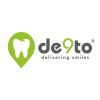-
About
- About Listly
- Community & Support
- Howto
- Chrome Extension
- Bookmarklet
- WordPress Plugin
- Listly Premium
- Privacy
- Terms
- DMCA Copyright
- © 2010-2025 Boomy Labs

 de9to Oralhealth
de9to Oralhealth
Listly by de9to Oralhealth
Good oral hygiene is necessary to keep teeth and gums healthy. It involves habits such as brushing twice a day and having regular dental checkups.
Smoking harms the body's immune system, which makes it difficult for the body to heal tissues, including those in the mouth. The CDC name smoking as a risk factor for gum disease Trusted Source, while the ADA warn that people who smoke may experience slow healing after a dental procedure.
Smoking also affects the appearance of the mouth, leading to yellowing of the teeth and tongue, and it can give breath a bad odor.
Sugar-sweetened beverages are the number one source of added sugars Trusted Source in the typical diet of those in the U.S. Sipping on soda, juice, or other sugary drinks can lead to a higher risk of cavities.
The ADA recommend drinking water or unsweetened tea throughout the day and only drinking sugar-sweetened drinks at meal times and in small volumes.
Flossing can remove plaque and bacteria from between the teeth, where a toothbrush is unable to reach. It can also help prevent bad breath by removing debris and food that has become trapped between the teeth.
Some studies indicate that certain mouthwashes can benefit oral health. For example, one review found that mouthwash containing chlorhexidine, an antibacterial ingredient, helps control plaque and gingivitis. Mouthwashes with certain essential oils are also effective, according to a meta-analysis.
People may wish to ask their dentist which is the best mouthwash for their individual needs. A mouthwash cannot substitute brushing and flossing, but it can complement these practices.

Good oral hygiene is necessary to keep teeth and gums healthy. It involves habits such as brushing twice a day and having regular dental checkups.
However, oral health is about more than cavities and gum disease. Research has shown that there is an association between the health of a person's mouth and their overall health. Experts consider oral health problems to be a global health burden Trusted Source.
A dentist can diagnose and treat oral health issues before they become severe.
Experts recommend that people see a dentist every 6 months for a checkup. During a routine dental examination, a hygienist will clean the teeth and remove plaque and hardened tartar.
The dentist will check for visual signs of cavities, gum disease, mouth cancer, and other oral health
Consuming sugar can lead to cavities. Studies continue to highlight the significant role that sugar plays in adverse dental health outcomes. Common culprits include candy and desserts, but many processed foods also contain added sugar.

Brushing twice a day and using dental floss can help keep teeth and gums healthy.
Most people are aware that brushing their teeth twice a day is one of the most important practices for removing plaque and bacteria and keeping teeth clean. However, brushing may only be effective if people use the correct technique.
Fluoride comes from an element in the earth's soil called fluorine. Many experts believe that fluoride helps prevent cavities, and it is a common ingredient in toothpaste and mouthwash.
However, some dental products do not contain fluoride, and some people do not use it at all.
Evidence suggests that a lack of fluoride can lead to tooth decay, even if a person takes care of their teeth otherwise.
Teaching good Oral healthcare can help ensure a child's teeth and gums remain healthy as they grow up.
A child's primary teeth, which people sometimes call baby teeth, are just as important as their permanent teeth. Baby teeth help a child chew and speak. They are placeholders for the future permanent teeth.
